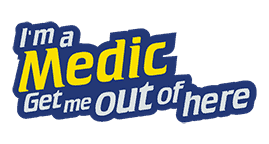These notes help you find your way through I’m a Medic
Want to read later? Bookmark this page or print the notes as a PDF.
Jump to…
- Overview – What’s it all about?
- Edit your profile
- Using ASK
- Using CHAT
- 4 Key Things: time commitment, student ability levels, saying ‘I don’t know’, your boss
- Advice for engaging
- Talk to us
The Event
I’m a Medic, Get me out of here! is a three week long careers and engagement event that takes place online.
It’s a competition for healthcare workers, where classes of school students vote to decide who wins in each zone. The event gets young people talking online to real healthcare workers to learn about careers in the NHS. Students have fun, but also get beyond stereotypes. The event is split into zones, and in each zone there are a number of healthcare teams or individuals and around 20 classes of students aged 12-18.
Aims: By participating, students:
- see people working in the NHS as people a bit like them
- see the variety of roles within the NHS
- feel as though their opinion is valued
Giving students real power (i.e. deciding where the money goes) makes the event more real for them.
What’s involved?

You interact online with young people, answering their questions about careers, education, and just about everything else. You also read students’ opinions on the NHS and get them thinking about the different roles in healthcare available. All you need to take part is a computer with an internet connection.
In addition to your profile there are three sections to the site:
- Students ASK you questions which you answer in your own time; the sooner
the better. - You CHAT with students online, answering their questions and hearing their
opinions. - Students VOTE for who they want to win a prize of £500 to spend on a
project to engage young people with careers in the NHS. The winner is announced on the last Friday.
Please think seriously about what you want to do with the £500 prize money as the students will ask you about it. Some suggestions include:
- Fund a visit to a school to talk about your work
- Fund a school to visit your workplace
- Make a video about your workplace or working day
- Fund work experience placements
- Buy equipment for school students to try your role hands-on
- Host a community open day to show the roles of all staff at your workplace
How to use the site
Logging in
Go to imamedic.uk and enter the username and password that we have emailed to you (or your team lead, if you’re taking part as a team).
For individual participants, your username will usually be ‘firstnamesurname’ (e.g. joebloggs). For teams, all members will use the same login (e.g. teamderby).
Your team lead’s email will receive live chat bookings and notifications of ASK questions sent to the whole team. We recommend this person sets up an autoforward to everyone else’s email to speed things up
Your profile
Find your profile from anywhere by clicking on your name at the top of any page.
Your profile enables the students find out more about you and your work. It’s really helpful if you fill in your profile as soon as possible, at least two weeks before the event, as this is when classes will start going to the site to do lessons on the healthcare workers in their zone. The profiles are different if you’re taking part as an individual or as a team.
Use the Edit Your Profile button to add information. When filling out your profile remember to save regularly, click the “Update Profile” button at the bottom after filling in each section.
Editing your profile as an individual
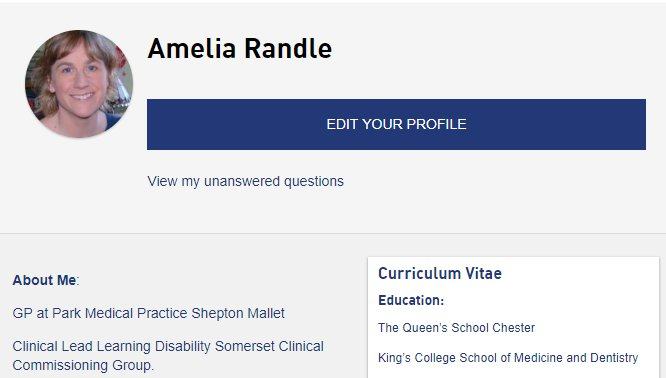
- About me – Lets students find out about you and your personal interests.
- My work —Students can read about what your role in more detail.
- My typical day —Gives students a tangible sense of what your work is like day to day.
- Spending the prize money– Students vote for the person they want to win, so they want to hear how you would use the prize money towards further engagement of young people with the NHS.
- CV—Shows students how you’ve got to where you are now.
- The interview — One line questions to show your personal side to students.
Editing your profile as part of a team
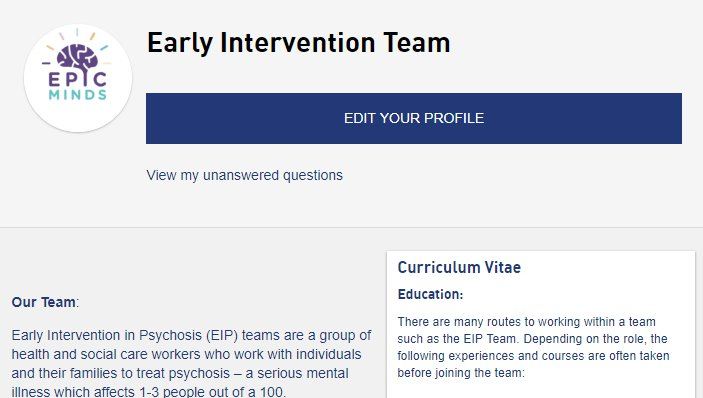
- Our Team – Students can find out where your team work and how you all work together.
- About the Team Members and What we do — Tell students about yourselves and your personal roles within the team.
- Our typical days — Gives students a tangible sense of what you each do on a daily basis.
- Spending the prize money – Students vote for the person they want to win, so they want to hear how you would use the prize money towards further engagement of young people with the NHS.
- CV—Shows students how you’ve got to where you are now.
- The interview — One line questions to show your personal side to students.
Everyone in the team should write a few sentences for each section, which should then be collated before uploading to the profile on the site. We suggest all working in a shared Google Doc, Word file or by having the team lead collect everyone’s information.To help students get to know you, we’d recommending putting your name and job title before your answer to each section. So, for the ‘Our Typical Day’ section, it might read:
Emily (Nurse): I usually arrive at work half an hour before the surgery opens. SO much happens
behind the scenes in your local doctor’s surgery. It is my job to check the vaccine fridges every morning. This is usually done with a pen behind my ear and a cup of tea in hand.
Michaela (GP): On a Monday I might be at the surgery to do minor operations for patients with worrying lumps and bumps. On a Friday I could be doing a general clinic, seeing people with all sorts of health problems.
Antony (Receptionist): I am the first person patients see when they come into the practice, so I
need to be welcoming and understanding. I am always busy booking appointments and answering
questions from patients as well as other general admin duties.
Adding images and other media
You can put a range of media types into your profile. For example, you might want to illustrate your workplace using photos or videos, or show your work in more depth using graphs or images.
To do this, upload as many images as you wish by clicking the ‘ADD MEDIA’ button and insert them where you want them to appear. Adding them all to a gallery lets people see a bigger version of the image when they click on it.
Add a profile photo
A big part of the event is for students to be able to identify with and relate to the healthcare workers as normal people, and having a photo of yourself really helps with this. Your profile photo will always appear circular on the site.
Please upload a full colour photo of you or your team’s friendly faces to the ‘Profile Image’ section.
If you are taking part as a team, you will need to email images of your team to emily@mangorol.la who will then make a GIF for your profile photo.
When you’ve finished, click the ‘Update Profile’ button at the end. You can come back and edit your profile at any time
Important: Personal contact information
For safeguarding reasons, all interaction between healthcare workers and students needs to be moderated and take place on the site. Please don’t include any links to your personal Twitter, email address or similar on your profile — we’ll be checking over your profile, too, and if we spot anything we’ll let you know. In the very unlikely event that a student does contact you outside of the site, don’t respond and let us know.
Please don’t give out any personal information in ASK section or the live chats either (even if a student really wants to know your Instagram handle!)
Interacting on the site
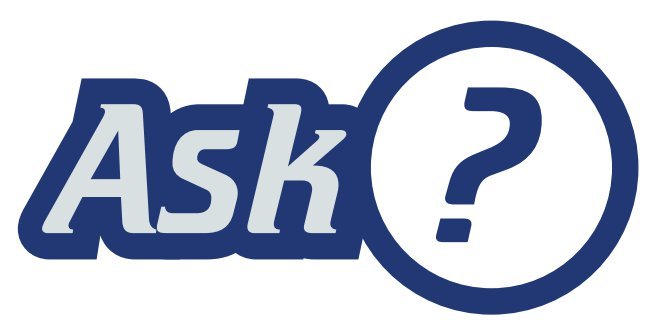
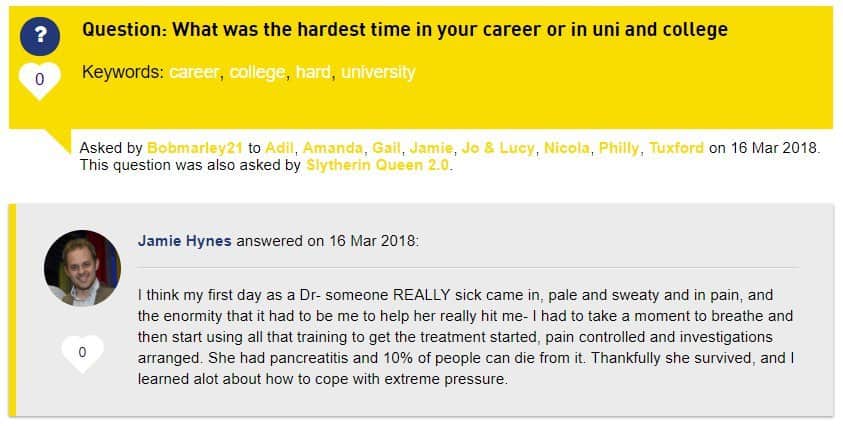
You’ll be notified by email of all new questions. You can answer in your own time, but the sooner the better.
- Log in
- On to your profile page, you’ll see ‘My Unanswered Questions’ listed on the right hand side. Up
to 100 recent unanswered questions will appear here as clickable links. - Click the link to the question and type in your answer.
You will also be able to view other healthcare workers’ answers to the question.
Start your answer with your name and role, e.g. ‘Emily (Nurse): I wanted to be a nurse since I was 9…’If another team member wants to answer the same question, they’ll be able to add a comment underneath your answer.
It’s up to you which questions to answer and how much detail to go into. Don’t be afraid to write a really long answer, but at the same time you don’t need to write long answers.
Feel free to comment on questions asked to other healthcare workers, too.
Our advice is simple; be honest, straightforward and to the point in your answers.
Moderation of ASK questions: Our policy
All questions are moderated before they are sent to you. The moderators work very hard to strike a balance between making your lives easier as participants, and giving the young people the chance to ask real questions
Duplicate questions We know you will get sent some very similar questions (believe us, the moderators wade through and weed out a lot more of them!). Moderators will take out duplicate questions in ASK, but allow through questions which may be similar, but make additional or slightly different points.
Offensive questions Moderators will remove rude or offensive questions (there are generally very few) and anything which breaks the house rules. They will allow challenging questions. They will allow irreverent, but friendly, questions.
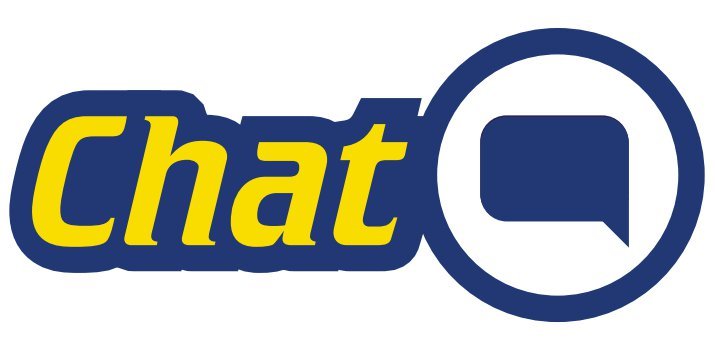
– Doing Live CHATs
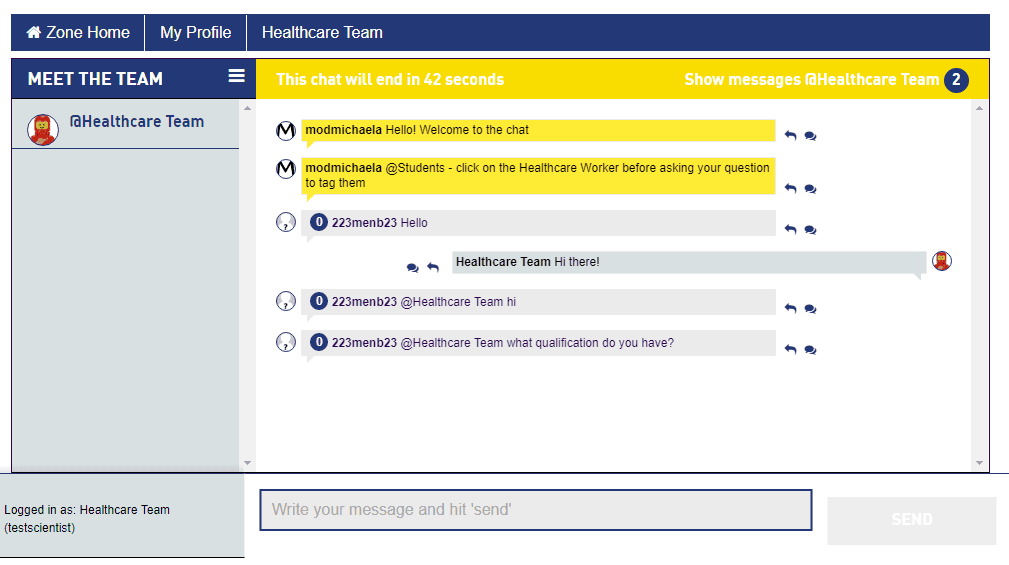
Live chats are text-based conversations, like WhatsApp group chats or Facebook Messenger, where students ask you questions and express their opinions. Live chats are fun and give immediate contact between healthcare workers and students, allowing students to relate to you. Many teachers tell us that quieter students are more active in these text-based chats than face to face, providing an interesting change to class dynamics.
The first time you log in there will already be chats to sign up to…
How to sign up for chat sessions
- Once logged in, go to this page: imamedic/live-chat. There’s also link on your profile under Live chat bookings
- Filter by your zone and for each chat booking you want to do, leave a comment on its page, saying something like ‘Yes, I’ll be there!’ or ‘Sorry, I can’t make this one’. This way we know there are enough healthcare workers available for each chat.
- We recommend making a note of the chat in a digital calendar/dusty leather-bound notebook of your choice (Some email clients will even automatically turn the notification subject line into a calendar appointment direct from your inbox)
Comment on the booking with the team member and role who can make the chat, e.g. ‘Antony (Receptionist) can make this chat!’
At the time of the chat:
- log in to your zone and click on the CHAT icon at the top to access the page
- about 5 minutes before each booking, the chat box will appear to give you time to get ready
Tips for Live Chats
- Chats can be hectic, but also exhilarating. Enjoy the hurly-burly and don’t worry too much about your spelling!
- To help you prioritise questions, the numbers next to each student’s username are how many times they’ve been personally answered. If you see a ‘0’ or ‘1’, this student may appreciate your next answer most.
- Click a student’s message to reply directly to it. Otherwise they may not realise you’ve answered their question, and keep asking it.
- If a chat is busy, use the ‘show messages @me’ button in the top right. This will filter the messages to those students have tagged you in.
- Be patient. Some young people’s turn of phrase and use of language may be different from academic discourse. It may take you a little while to understand what they are trying to ask. This is especially true when Special Schools are involved.
- Be tolerant. Sometimes young people can be over-exuberant online. Chat with them and they will calm down and engage with you.
- Don’t take offence. Sometimes you will receive questions which seem quite blunt, but usually students don’t mean to be offensive. The benefit of an online event is that they feel empowered to ask.
- Remember that anyone with a mortarboard next to their name in a chat is a teacher.
- There will always be a moderator in the chatroom to help things along. However, they are not miracle-workers, and from time to time there will be the odd chat that we cannot get on track. Bear with us, we’re doing our best!
Four key things you need to know
1. This may take up to 1 hour per weekday.
There will be a maximum of two 30 minute live chats booked each day from 9am – 4:30pm, and participants usually spend some time in the evening answering questions. It doesn’t matter if on some days you are less available. Taking part as a team means you can share the time commitment: if you’re currently signed up to take part as an individual, but would like to invite your colleagues to join you, please email Michaela on michaela@mangorol.la
The time involved depends, to an extent, on how busy your zone is, but also how long you spend on your answers. Classes vary on how much time the teacher spends on it and how much the kids get into it and we can’t predict that beforehand. We try to even it out!
2. This is an activity for all kinds of student
There will be a wide variation in the students taking part, with a big variation in age and ability. Some will be ‘gifted and talented’ students, some will be lower ability classes, or have special educational needs. The point of I’m a Medic is to engage all students with careers in the NHS, not only those who might go on to study medicine at university.
Above all, though many teenagers won’t grow up to work in the NHS, they will all grow up to be people. As adults they’ll have to make decisions about their health – as voters, as patients, as consumers – and we are trying to help them develop the skills and confidence to do that. For some ‘Do you like your job?’ may be the most pressing question they can think of. Part of the point is that this event broadens their understanding of the NHS, and humanises the people that work there.
3. Don’t be afraid to say ‘I don’t know’
You will be asked many questions which are not in your area. Answer what you feel you can, but don’t feel you have to Google all evening. Part of the point of the event is that students get a more realistic idea of what it’s like to work in the NHS. You can work in healthcare without being a genius who knows everything about every part of the human body, for example! That can be a liberating realisation for students.
4. Get your boss onside
We’d strongly advise you to tell your boss you are taking part in the event, and get their support, if you can. ASK questions on the website can be answered during the evening, but live chats have to be during the school day, so during working hours. If you need ammunition to persuade your boss of the benefits, we suggest the following points:
- It can re-energise you about your own views on your work, and get you thinking differently. Teenagers can ask great questions.
- It can broaden your relationships and understanding of other healthcare workers. They will be answering questions that you may never have thought to ask about their role, and opinions on important subjects.
- Students find out about careers within the NHS. The event helps students see the wide range of healthcare roles open to them, and reaches those who don’t usually have the opportunity to ask about those roles.
- Taking part develops your communication skills. This is the most mentioned benefit from taking part in our I’m a Scientist…event.
Many participants find themselves discussing some of the more intriguing questions with colleagues and sharing the experience really does add to the overall benefits. Get in touch to bring your colleagues on board and represent your workplace.
Advice on Engagement
Be yourself
Our best advice is to be yourself in your answers. You don’t need to pretend to like Beyoncé/Justin Bieber/Taylor Swift for young people to relate to you, being genuine is what’s important.
Be friendly
When we asked people what they would do differently if they did these events again, one answer that summed up many was, “I would be less formal and more personal from the start”.
De-technify your language
Even if you think you are using easy-to-understand language, you likely work in an environment where there is a lot of jargon, and technical words are often used when more accessible ones are available. It’s easy not to realise when your language may be going over the heads of most 13 year olds.
Don’t “identify”, “find”. Don’t “utilise”, “use”. Don’t “investigate”, “look at”.
Talk to us!
Please communicate with other healthcare workers and the moderation team, as well as the students. Let us know in the online staffroom if you’re having any problems, open weekdays from 9am – 5pm each day of the event.
We’ll also use Twitter as a way to interact with healthcare workers taking part in I’m a Medic. It’s a great way to communicate how the event’s going, learn more about the healthcare workers and ultimately keep in touch with you after the event. So get on board and follow us @imamedic_uk
Contact
If you need any help, please email support@mangorol.la or call 01225 667922.
Visit the Staffroom at imamedic.uk/staffroom during the event to say Hi, or if you’ve got a question for the moderators.
